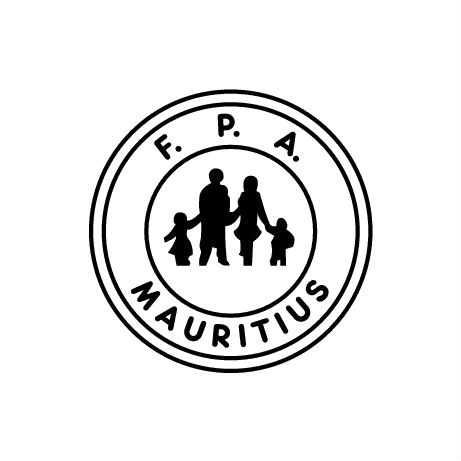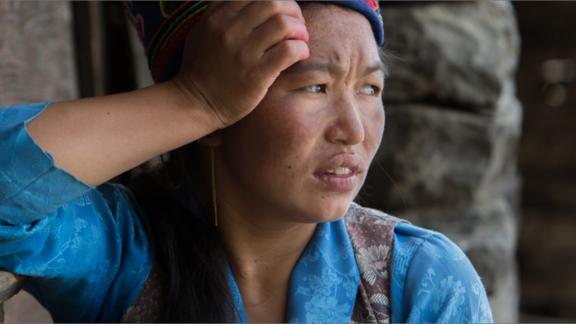

| 31 March 2016
Fianakaviana Sambatra - Madagascar Association
Relative to much of Africa, Madagascar has high levels of contraceptive use, but high birth rates coupled with endemic poverty and limited government-led sexual and reproductive health (SRH) provision mean that child mortality and maternal death figures are high. Fianakaviana Sambatra (FISA) has been fighting since 1967 to improve the nation’s SRH through advocacy, education and direct service provision. Currently, it runs 67 service points, including: 11 permanent clinics, 3 mobile units and 12 community-based services (CBSs), across 6 of the country’s regions. FISA works with 5 associated clinics and 29 private practitioners. FISA has 70 full-time staff, 184 peer educators, and a youth action movement made up of 42 members. FISA delivers a wide range of services: family planning, prevention and management of HIV and AIDS and the provision and dissemination of comprehensive SRH materials. FISA has used its on-the-ground experience to advise government on national SRH policy. It has partnered with the Ministry of Health, Family Planning and Social Protection, and the Ministry of Youth to advocate for a concerted approach to resolving the critical SRH issues currently facing the country. At the same time, it works with non-governmental organizations (NGOs) such as Marie Stopes International, and the ASSONG coalition of NGOs. FISA receives financial support from UNFPA, the Big Lottery Fund, Amélioration de la Qualité De Services, the EU and IPPF’s Japan Trust Fund. It’s also closely connected to other organizations promoting SRH rights across the country and the region.

| 14 March 2024
Health Development Initiative (HDI-Rwanda)
Health Development Initiative (HDI-Rwanda) is a non-profit organization based in Kigali, Rwanda, dedicated to improving healthcare quality and accessibility for all. Our approach is rooted in human rights, aiming to build a society where every person can attain optimal health and well-being, regardless of their social, cultural, economic or any other status. HDI advocates for the enhancement of health outcomes through the implementation of laws, policies, and programs tailored to address the needs of diverse groups, including women, children, historically marginalized communities, individuals living with HIV/AIDS, youth, and other marginalized populations. HDI has two service delivery points : Kicukiro and Nyakabanda. Average total clients served through the clinic: 8,000 Approx. 65% women Average calls received through the hotline: 85,000 Approx. 85% women, 70% adolescents under 19 Average number of cases of SGBV, discrimination, child registration and women seeking safe abortion supported by HDI’s legal team each year: 1,500 Over 95% women seeking safe abortion SRHR Clinical services: Provision of emergency contraceptives for vulnerable women and girls Linkage to comprehensive safe abortion services Pregnancy testing and linkage to health services Provision of comprehensive SRHR education HIV testing; linkage to care and treatment for those who are HIV-positive STIs screening and referral for treatment Referral for voluntary male medical circumcision SRHR Outreach Service (SRHR and community health education) Psychosocial Support, Counseling, and Legal Aid Family planning counseling and linkage to services Counseling, psychosocial support, and legal assistance to GBV survivors Pre-abortion and post-abortion counseling and legal assistance Legal aid for key populations for legal advice, support, and education on laws and human rights Psychosocial support for key populations and LGBTI community members Follow up on cases of violence and detention on the grounds of sexual orientation and gender identity and sex work Toll-Free Hotline Information on SRHR topics including HIV prevention, menstruation, contraception, relationships, among many others Referral for clinic services Social media pages: Twitter: https://twitter.com/HDIRwanda Instagram: https://www.instagram.com/hdirwanda/ Facebook: https://www.facebook.com/HDIRwanda

| 31 March 2016
Lesotho Planned Parenthood Association
One of IPPF’s central beliefs is that processes and approaches need to be adapted to meet the specific needs of a country. In Lesotho, a country with one of the highest HIV prevalence rates in the world, LPPA is very active in finding new ways to address neglected needs. LPPA provides a comprehensive range of sexual and reproductive health including: family planning, the management of sexually transmitted infections (STIs), screening for cancers of the reproductive system, the distribution of contraceptives and emergency contraceptives, pregnancy testing, post-abortion care, voluntary counselling and testing (VCT) and the management of infections. Clients are referred to other centres for CD4 tests and ARV treatment. LPPA reaches out to the communities it serves through 47 service points: 10 permanent clinics, 9 private providers, 30 associated agencies, 90 peer educators and 14 community-based distributors (CBDs). There are 54 permanent staff who are supported by over 200 volunteers. An estimated 75% of LPPA's clients are poor, marginalized, socially excluded and/or under-served. Target groups include cattle herders, prisoners, rural populations, factory workers, university students, police trainees and people living with HIV and AIDS. LPPA targets out-of-school children, and disseminates SRH information through drama, puppetry, sports for life, and facilitated discussions. Other education programmes include health talks, workshops, performances and radio and TV shows. In advocacy, LPPA reaches out to teachers, religious leaders and government leaders to promote favourable approaches to, and legislation on, SRH. LPPA has influential partnerships with government health and population departments, and it partners with major non-governmental organizations (NGOs). Donors include Irish Aid, UNDP, the Japan Trust Fund, and IPPF’s Korea Africa Fund. The Member Association has strong linkages with other organizations across the country, particularly in relation to HIV and AIDS. Website: www.lppa.org.ls

| 31 March 2016
Mauritius Family Planning & Welfare Association
Set up in 1957, the Mauritius Family Planning & Welfare Association (MFPWA) was one of the earliest organizations in Africa focusing on family planning issues. As the nation struggled to find a way to address pressing population issues, a group of advocates formed MFPWA and started to provide services directly to women. Today, the organization caters to the sexual and reproductive health (SRH) needs of the whole community. It also has particular strands of activity relating to specific groups including sexually abused children, elderly people and marginalized populations on Rodrigues Island. Through 2 permanent facilities, and a private sector-supported daycare centre, MFPWA’s 15 staff and 550 volunteers deliver services including family planning, the prevention and management of HIV and AIDS through voluntary counselling and testing (VCT), support for people living with HIV/AIDS, infertility management, antenatal and post-natal care, post-abortion care, the diagnosis and treatment of sexually transmitted infections (STIs) and screening for cancers of the reproductive systems. The Member Association also operates peer-educator-led outreach programmes targeting hotels, export processing zones and popular tourist hot spots. MFPWA has played a critical role in promoting the integration of family life education into the national school curriculum and its powerful, informed advocacy has been influential in shaping government legislation on SRH, particularly in relation to HIV and AIDS. MFPWA partners with and advises government departments which address health, quality of life, women’s rights, child development, family welfare, social security and youth and sports. MFPWA works with a large number of non-governmental organizations (NGOs) including the Mauritius Council of Social Service, the Mauritius Alliance of Women, PILS (People living with AIDS), SOS Pauvrete, the National Women’s Council, the Senior Citizen Council and Link. Donors include the Indian Ocean Commission and UNFPA. Website: http://mauritiusfamilyplanning.com

| 31 March 2016
Planned Parenthood Association of Sierra Leone
The Planned Parenthood Association of Sierra Leone (PPASL), established in 1959, works on a range of serious sexual and reproductive health (SRH) issues to improve people's health and quality of life. A key focus is to improve access to maternal health care, to reduce the risk of maternal and infant death. PPASL accesses the community through 5 service points, 12 workplace outreach projects, and 3 youth centres, via a 40-strong permanent staff team, backed by nearly 300 volunteers, 9 community-based distributors (CBDs) and a Youth Action Movement membership of 150. There is a 90% prevalence of female genital mutilation (FGM) in the country, and finding ways to handle the attendant psychological and physical trauma is one of the organization’s major challenges. Much of PPASL’s work is directed towards behaviour change communication (BCC) among community leaders, police and army personnel and Muslim and Christian groups. Safe motherhood, family planning, and the sensitisation of young people to SRH concerns are also central to the direct services which PPASL provides. The Member Association works in partnership with government health and development ministries and the Sierra Leone Armed Forces Hospitals. Non-governmental organization (NGO) partners include the Reproductive Health Service, CHASL, MSSL, National AIDS Secretariat/SHARP and the Marie Stopes Society. PPASL receives financial support from UNFPA, UNICEF, UNAIDS, the Global Fund for HIV/AIDS, Plan International, MOHS & RH UNIT, Marie Stopes Society, SL Red Cross Society and Action Aid. Contacts Website: www.ppasl.org Facebook: https://www.facebook.com/groups/454639337890032/

| 31 March 2016
Planned Parenthood Association of Ghana
Ghana is a country which has deep-rooted cultural norms, and structural barriers that perpetuate poor sexual and reproductive health. These include high risks of maternal mortality, high numbers of sexually transmitted infections, including HIV, and low levels of contraceptive use. The Planned Parenthood Association of Ghana (PPAG) was set up in 1967 to provide family planning services to the people of Ghana. Over the years, its work has expanded to cover a whole range of sexual and reproductive health (SRH) services. Today, in addition to basic family planning support, PPAG provides maternal and child health care, infertility management, and voluntary counselling and testing (VCT) for sexually transmitted infections (STIs) including HIV and AIDS. It also provides other SRH services (for example, programmes for the management of erectile dysfunction). PPAG’s operation depends on a team of 103 staff, over 1,000 volunteers, 300 peer educators, 551 community-based distributors (CBDs) and a Youth Action Movement membership of 810 young people. PPAG's delivers services and programmes through 1,356 service points, including 11 permanent clinics, 54 mobile clinics and over 1,000 community-based service points (CBSs). PPAG works with a huge roster of partners, right across government in health, education, HIV and AIDS, youth, and population planning departments. Its civil society networks include over 15 non-governmental organizations. It receives financial support from the Japanese International Cooperation Agency, the Japanese Organization for International Cooperation in Family Planning, UNFPA, the Programme For Appropriate Technology in Health (PATH), the African Youth Alliance (AYA), the Big Lottery Fund (BLF) of UK, DANIDA, the French Embassy, the UK’s Department for International Development (DfID), UNICEF and GTZ. Contacts Website: www.ppag.org.gh Facebook: https://www.facebook.com/Planned-Parenthood-Association-of-Ghana-PPAG-258152110962577/ Twitter: https://twitter.com/ppagghana
Pagination
- First page
- Previous page
- …
- 4
- 5
- 6
- …
- Next page
- Last page








